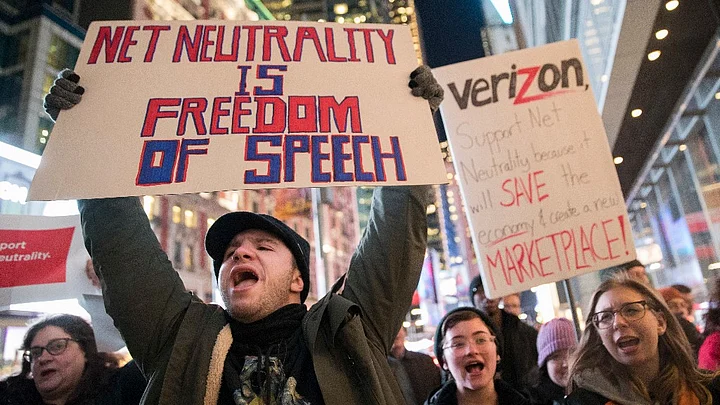There could be a lot of changes in the way US citizens consume online video content following the official demise of Obama-era internet protections. In other words, net neutrality in the US is dead.
Any changes are likely to happen slowly, as companies assess how much consumers will tolerate.
The repeal of "net neutrality" took effect six months after the Federal Communications Commission voted to undo the rules, which had barred broadband and cellphone companies from favoring their own services and discriminating against rivals such as Netflix.
Internet providers such as AT&T, Verizon and Comcast had to treat all traffic equally. They couldn't slow down or block websites and apps of their choosing. Nor could they charge Netflix and other video services extra to reach viewers more smoothly.
The rules also barred a broadband provider from, say, slowing down Amazon's shopping site to extract business concessions.
With net neutrality rules gone, AT&T and Verizon can give priority to their own movies and TV shows, while hurting rivals such as Amazon, YouTube and startups yet to be born.
Now, all that is legal as long as companies post their policies online. The change comes as broadband and cellphone providers expand their efforts to deliver video and other content to consumers.
The battle isn't entirely over, though. Some states are moving to restore net neutrality, and lawsuits are pending. Also, the Senate voted to save net neutrality, though that effort isn't likely to become law.
For now, broadband providers insist they won't do anything that would harm the "internet experience" for consumers. Most currently have service terms that specify they won't give preferential treatment to certain websites and services, including their own.
However, companies are likely to drop these self-imposed restrictions; they will just wait until people aren't paying a lot of attention, said Marc Martin, a former FCC staffer who is now chairman of communications practice at the law firm Perkins Coie.
Any changes now, while the spotlight is on net neutrality, could lead to a public relations backlash.
Companies are likely to start testing the boundaries over the next six months to a year. Expect to see more offers like AT&T's exemption of its DirecTV Now streaming TV service from customers' mobile data limits. Rival services like Sling TV and Netflix count video against data caps, essentially making them more expensive to watch.
Although the FCC issued a report in January 2017 saying such arrangements, known as "zero rating," are probably anti-consumer, the agency did not require companies to change their practices right away.
(At The Quint, we question everything. Play an active role in shaping our journalism by becoming a member today.)
